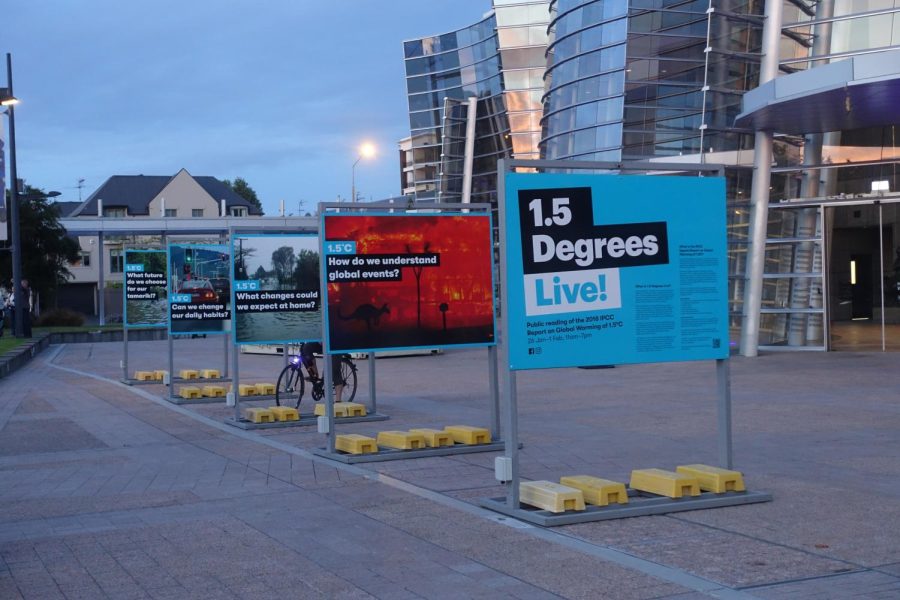1.5°C: We Are Running Out of Time
December 1, 2022
One of the most pressing issues highlighted throughout COP27 has been whether we can reach the 1.5C agreement made by national governments during the Paris 2015 Agreement.
In 2015, the Paris Agreement established the remarkable Long-Term Temperature Goal that states “holding the increase in the global average temperature to well below 2C above pre-industrial levels,” ideally limiting it within 1.5°C above preindustrial levels, with common recognition that meeting this goal will significantly reduce the risks and minimize the impacts of climate change. It requires governments to put forward the 2030 pledges to cut emissions to limit warming. Currently, science tells us that we must—and as of now, we can—reach the 1.5°C goal, but we are running out of time.
It has been made clear by the IPCC, that limiting temperature rise within 1.5°C can avoid the worst impacts climate change can elicit. Merely a difference between 1.5°C and 2°C can create tremendous distinctions. More warming directly enlarges the impact of climate change, and even a small degree can lead to extreme impacts such as massive heatwaves, heavy rainfall, and droughts, as well as the catastrophic risk of crossing tipping points of our planet’s system.
Yes, we can still reach the 1.5°C goal—however, the window is soon to be closed; we are now at 1.2°C above the preindustrial level. As Climate 101 tells us, 1.5°C is now a limit, not a target. We must put forward our full effort to stay within the limit in order to prevent worsening impacts and potential suffering that a breach can bring. Of course, convincing your family to purchase a new, fuel-efficient car or shutting down factories to prevent warming is impractical, but there are still some simple things you can do to contribute to the achievement of the 1.5°C—even just a little bit.
Try to switch your lightbulbs whenever necessary, or remind yourself to shut any light sources, devices, or tablets down when you aren’t using it. That can save you thousands of pounds of CO2 per year.
When purchasing food, try to choose choices within your local region: the transportation between goods can also cause quite a lot of emissions. In addition, try to avoid food and beverages with too much packaging. The reduction of garbage is also essential to lowering CO2.
Lastly, try to take a closer look at the things we can do in life that can take us an extra minute. For instance, when finishing lunch at school, simply take a closer look at the symbols indicating the food to be composted or landfill; when throwing out garbage or clothing, look to see if there are any opportunities for them to be reused or recycled. It is the small things in life that combine to create a larger outcome.

